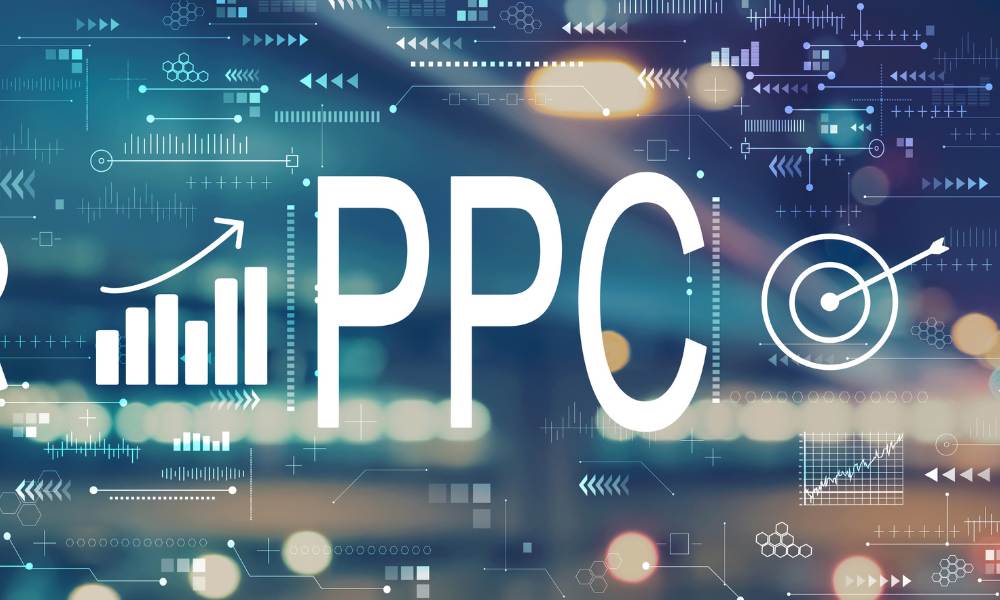Pay-per-click (PPC) advertising is a powerful tool that can significantly enhance your construction company’s visibility and drive more leads. However, PPC campaigns require careful attention to detail, and there are several common mistakes that can hinder their effectiveness. In the competitive construction industry, where every lead counts, avoiding these pitfalls is essential for maximizing your return on investment (ROI). In this article, I’ll highlight the most frequent PPC mistakes that can derail your campaigns and share practical tips on how to avoid them.
What You Will Learn:
- Why Clear Campaign Goals Are Crucial for PPC Success
Learn how setting specific, measurable goals can guide your PPC strategy and optimize performance. - The Importance of Testing and Tracking Metrics
Understand the role of continuous testing and tracking in improving the success of your PPC ads. - Why PPC Campaigns Shouldn’t Be “Set It & Forget It”
Discover the value of regular monitoring and optimization for sustained PPC performance. - Optimizing Landing Pages for Maximum Conversions
Find out how aligning your landing pages with your PPC ads can increase your conversion rates. - Avoiding Overwhelming Campaigns and Staying Focused
Learn the importance of targeting the right keywords and keeping your PPC efforts focused for better results. - The Role of Negative and Exact Match Keywords in Your Campaigns
Learn how to use negative and exact match keywords to maximize your PPC budget and avoid wasted spend. - How to Avoid Technical and Quality Score Mistakes
Discover how technical mistakes and poor quality scores can harm your campaign’s performance and how to fix them.
Why Clear Campaign Goals Are Crucial for PPC Success
The first step to creating a successful PPC campaign is to establish clear, specific goals. Without defined objectives, it’s impossible to measure success, and your efforts can quickly become scattered or ineffective. Whether your goal is lead generation, increasing website traffic, or promoting a specific service, it’s important to establish measurable targets from the start. For example, you might aim to generate 100 new leads per month or achieve a certain conversion rate.
Having specific goals helps you focus your PPC efforts and measure the performance of your ads, allowing for data-driven decisions and adjustments. Without clear goals, you might waste time and money targeting the wrong audience or using ineffective keywords.
The Importance of Testing and Tracking Metrics

PPC advertising is not a one-size-fits-all strategy. To optimize your campaigns, regular testing and tracking are essential. Failing to track key metrics like click-through rates (CTR), conversion rates, and cost-per-click (CPC) can result in wasted ad spend and missed opportunities for optimization.
By continuously testing different ad copy, visuals, targeting options, and landing pages, you can identify what resonates most with your audience and make informed decisions about how to adjust your strategy. Tracking your metrics allows you to make adjustments in real time, ensuring that your PPC campaigns are performing at their best.
Why PPC Campaigns Shouldn’t Be “Set It & Forget It”
One of the biggest mistakes in PPC marketing is setting up a campaign and leaving it running without regular updates. PPC campaigns require ongoing attention and optimization. Keywords and ad performance can fluctuate, and trends in the construction industry can shift rapidly. Regularly monitoring your campaigns and making necessary adjustments is key to keeping them relevant and effective.
This includes testing different ad copy variations, adjusting bidding strategies, refining targeting, and updating landing pages to reflect new trends or services in your business. Without continuous optimization, your PPC campaign will lose momentum, and you may miss out on valuable leads.
Optimizing Landing Pages for Maximum Conversions
The PPC ad brings visitors to your site, but it’s the landing page that closes the deal. An optimized landing page is essential for turning clicks into actual leads. Your landing page should be directly aligned with your ad’s messaging to maintain consistency and relevance. It should clearly explain the value proposition and have a strong call to action (CTA).
In the construction industry, where customers often make large financial decisions, trust signals like testimonials, certifications, and a clear explanation of services can make a big difference. Additionally, ensuring the page is mobile-friendly and loads quickly is crucial, as many users may access the page from mobile devices. A seamless, user-friendly experience is essential for converting visitors into leads.
Avoiding Overwhelming Campaigns and Staying Focused
In PPC campaigns, it’s easy to fall into the trap of targeting too many keywords or ad groups in an effort to capture as much traffic as possible. However, this can lead to wasted ad spend and poor performance. Instead, it’s better to focus on highly relevant keywords with purchase intent.
For example, as a construction company, bidding on highly specific terms like “commercial building contractors Perth” will likely deliver more qualified leads than broader terms like “construction services.” Stay focused on keywords that are directly related to your services and ensure your campaign is aligned with what potential clients are searching for.
The Role of Negative and Exact Match Keywords in Your Campaigns
Negative and exact match keywords are two powerful tools that can help you fine-tune your PPC campaigns and avoid wasted ad spend. Exact match keywords allow you to target users who are specifically searching for your services. These keywords ensure that your ads are shown to the most relevant audience, reducing the chances of irrelevant clicks.
On the other hand, negative keywords help exclude irrelevant searches. For example, if you specialize in high-end residential construction, you might want to exclude terms like “cheap construction” or “DIY home building.” By using negative keywords, you can ensure that your ads are only shown to users who are more likely to convert, thus saving your budget for more qualified leads.
How to Avoid Technical and Quality Score Mistakes

Technical mistakes, such as incorrect targeting or bidding settings, can severely damage your PPC performance. It’s essential to double-check all your settings to ensure your ads are being shown to the right audience at the right time. Moreover, focusing on improving your Quality Score is critical. Quality Score is a metric used by search engines like Google to determine the relevance of your ads and landing pages to users.
A high Quality Score can lower your cost-per-click and improve your ad placement, which ultimately helps you achieve a better ROI. You can improve your Quality Score by writing compelling ad copy, ensuring your landing page is relevant and high-quality, and aligning your keywords with your ad content.
Bad Ad Copy: How to Avoid It
Your ad copy is the first thing potential clients will see when they come across your PPC ad, and it needs to grab their attention. Poorly written ads can lead to low click-through rates (CTR), wasting your budget on irrelevant clicks. It’s crucial to write ad copy that speaks directly to your target audience, clearly explaining the benefits of your services and why they should take action.
For construction companies, using strong CTAs like “Get Your Free Estimate” or “Schedule Your Consultation Today” can motivate users to click. Additionally, make sure your ad copy highlights what makes your services stand out and why potential clients should choose your company over competitors.
Final Thought
Creating an effective PPC strategy for your construction business takes more than just setting up ads and hoping for the best. It requires continuous optimization, careful keyword selection, and relevant, high-quality content that speaks to your potential customers’ needs. If you’re looking to improve your PPC campaigns and drive better results, contact us today for a free marketing plan tailored to your business.
In conclusion, avoiding common PPC mistakes can significantly improve the performance of your campaigns and help you generate more qualified leads for your construction business. By staying focused, testing regularly, and ensuring your landing pages are optimized, you can maximize your PPC budget and grow your business effectively.


